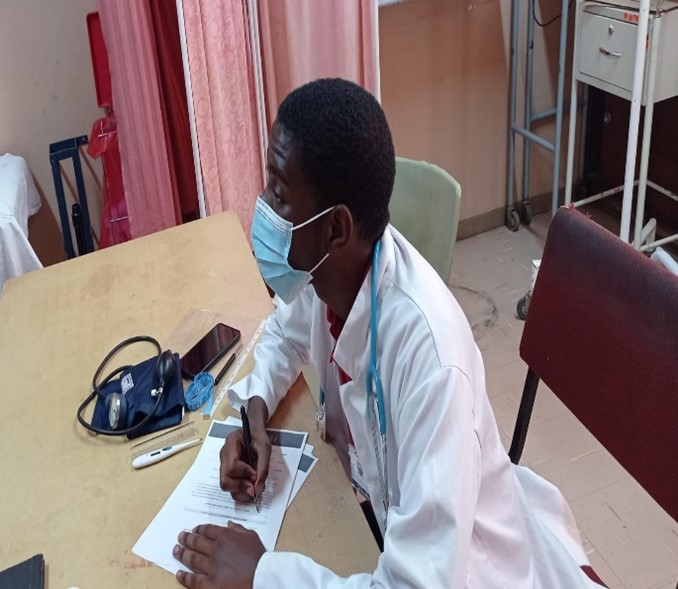Based in South Africa, Ikaneng Yingwane tells us the importance of honest and empathetic communication for junior doctors.
The medical field is undergoing a paradigm shift. Clinical encounters should no longer be paternalistic (an authoritative approach where decisions are taken by the doctor with little regard to the patient’s input) but rather be more collaborative (an approach characterised by a partnership between the patient and doctor).
This shift focuses on developing a partnership between doctor and patient through effective communication. Medical schools have also followed suit by incorporating teaching "The art of communication" to students. Here is what I have learned so far:
1. The importance of empathy
Empathy is about being aware of and sharing another person's emotions. In terms of medicine, it involves placing yourself in the patient's position, acknowledging their worries and fears, and demonstrating true compassion. We are given the opportunity to meet real patients, helping us to hone our communication abilities. To provide successful healthcare, patients must be able to interact with providers on a deeper level and develop trust.
2. Active listening
Active listening is about being totally present and attentive. It involves more than just hearing what the patient is saying. To ensure we fully comprehend the patient's condition and concerns, we need to ask open-ended questions, clarify information, and reflect on what the patient has said by repeating the most important things they are trying to get across to you through what they say or their non-verbal actions. While also helping to give a proper diagnosis, active listening encourages a feeling of cooperation between the patient and the healthcare provider.
3. Technical jargon
Patients can feel intimidated by the technical jargon and intricate language that is frequently used in medicine. We have learned to convert these complex ideas into intelligible English, with the knowledge on how to effectively convey diagnoses, available treatments, potential dangers, and benefits to patients so that they can make educated healthcare decisions. This ability is especially important when tackling challenging subjects or breaking bad news.
4. Medical ethics
Our education is heavily influenced by medical ethics. We were instructed on how to resolve difficult moral dilemmas and decide what is best for the patient. This entails being upfront and truthful in discussing the potential dangers and advantages of various treatment alternatives. We also learned about getting informed consent, which ensures that patients are well-informed about any clinical encounter they have with us and actively participate in decision-making.
5. Cultural sensitivity
Last, but certainly not least, we had the unique chance to learn about cultural sensitivity, because of the broad patient population we encountered in our clinical rotations. To provide patient-centred care, it is essential to recognise and accept cultural differences. As a result of our exposure to patients from varied cultural origins, we could better understand how cultural differences can affect a patient's beliefs, values, and healthcare preferences. This insight enables us to modify our communication and treatment strategies to accommodate different patient needs.
 Ikaneng Yingwane
Ikaneng Yingwane
______
To read more student articles like this visit our student hub.